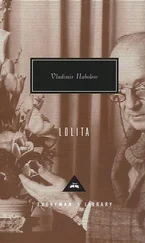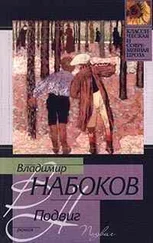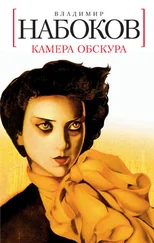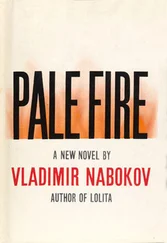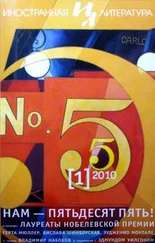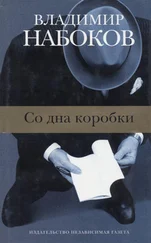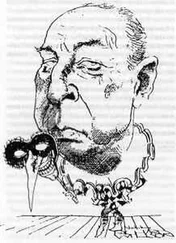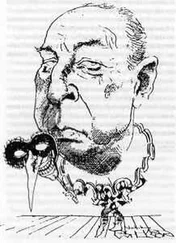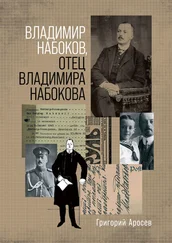Владимир Набоков - Ada, or Ador - A Family Chronicle
Здесь есть возможность читать онлайн «Владимир Набоков - Ada, or Ador - A Family Chronicle» весь текст электронной книги совершенно бесплатно (целиком полную версию без сокращений). В некоторых случаях можно слушать аудио, скачать через торрент в формате fb2 и присутствует краткое содержание. Жанр: Классическая проза, Современные любовные романы, на английском языке. Описание произведения, (предисловие) а так же отзывы посетителей доступны на портале библиотеки ЛибКат.
- Название:Ada, or Ador: A Family Chronicle
- Автор:
- Жанр:
- Год:неизвестен
- ISBN:нет данных
- Рейтинг книги:3 / 5. Голосов: 1
-
Избранное:Добавить в избранное
- Отзывы:
-
Ваша оценка:
- 60
- 1
- 2
- 3
- 4
- 5
Ada, or Ador: A Family Chronicle: краткое содержание, описание и аннотация
Предлагаем к чтению аннотацию, описание, краткое содержание или предисловие (зависит от того, что написал сам автор книги «Ada, or Ador: A Family Chronicle»). Если вы не нашли необходимую информацию о книге — напишите в комментариях, мы постараемся отыскать её.
Ada, or Ador: A Family Chronicle — читать онлайн бесплатно полную книгу (весь текст) целиком
Ниже представлен текст книги, разбитый по страницам. Система сохранения места последней прочитанной страницы, позволяет с удобством читать онлайн бесплатно книгу «Ada, or Ador: A Family Chronicle», без необходимости каждый раз заново искать на чём Вы остановились. Поставьте закладку, и сможете в любой момент перейти на страницу, на которой закончили чтение.
Интервал:
Закладка:
Her poor pretty hands — one could not help cooing with pity over them — rosy in comparison to the translucent skin of the arm, rosier even than the elbow that seemed to be blushing for the state of her nails: she bit them so thoroughly that all vestige of free margin was replaced by a groove cutting into the flesh with the tightness of wire and lending an additional spatule of length to her naked fingertips. Later, when he was so fond of kissing her cold hands she would clench them, allowing his lips nothing but knuckle, but he would fiercely pry her hand open to get at those flat blind little cushions. (But, oh my, oh, the long, languid, rose-and-silver, painted and pointed, delicately stinging onyxes of her adolescent and adult years!)
What Van experienced in those first strange days when she showed him the house — and those nooks in it where they were to make love so soon — combined elements of ravishment and exasperation. Ravishment — because of her pale, voluptuous, impermissible skin, her hair, her legs, her angular movements, her gazelle-grass odor, the sudden black stare of her wide-set eyes, the rustic nudity under her dress; exasperation — because between him, an awkward schoolboy of genius, and that precocious, affected, impenetrable child there extended a void of light and a veil of shade that no force could overcome and pierce. He swore wretchedly in the hopelessness of his bed as he focused his swollen senses on the glimpse of her he had engulfed when, on their second excursion to the top of the house, she had mounted upon a captain’s trunk to unhasp a sort of illuminator through which one acceded to the roof (even the dog had once gone there), and a bracket or something wrenched up her skirt and he saw — as one sees some sickening miracle in a Biblical fable or a moth’s shocking metamorphosis — that the child was darkly flossed. He noticed that she seemed to have noticed that he had or might have noticed (what he not only noticed but retained with tender terror until he freed himself of that vision — much later — and in strange ways), and an odd, dull, arrogant look passed across her face: her sunken cheeks and fat pale lips moved as if she were chewing something, and she emitted a yelp of joyless laughter when he, big Van, slipped on a tile after wriggling in his turn through the skylight. And in the sudden sun, he realized that until then, he, small Van, had been a blind virgin, since haste, dust and dusk had obscured the mousy charms of his first harlot, so often possessed.
His sentimental education now went on fast. Next morning, he happened to catch sight of her washing her face and arms over an old-fashioned basin on a rococo stand, her hair knotted on the top of her head, her nightgown twisted around her waist like a clumsy corolla out of which issued her slim back, rib-shaded on the near side. A fat snake of porcelain curled around the basin, and as both the reptile and he stopped to watch Eve and the soft woggle of her bud-breasts in profile, a big mulberry-colored cake of soap slithered out of her hand, and her black-socked foot hooked the door shut with a bang which was more the echo of the soap’s crashing against the marble board than a sign of pudic displeasure.
10
Weekday lunch at Ardis Hall. Lucette between Marina and the governess; Van between Marina and Ada; Dack, the golden-brown stoat, under the table, either between Ada and Mlle Larivière, or between Lucette and Marina (Van secretly disliked dogs, especially at meals, and especially that smallish longish freak with a gamey breath). Arch and grandiloquent, Ada would be describing a dream, a natural history wonder, a special belletristic device — Paul Bourget’s ‘monologue intérieur’ borrowed from old Leo — or some ludicrous blunder in the current column of Elsie de Nord, a vulgar literary demimondaine who thought that Lyovin went about Moscow in a nagol’nïy tulup, ‘a muzhik’s sheepskin coat, bare side out, bloom side in,’ as defined in a dictionary our commentator produced like a conjurer, never to be procurable by Elsies. Her spectacular handling of subordinate clauses, her parenthetic asides, her sensual stressing of adjacent monosyllables (‘Idiot Elsie simply can’t read’) — all this somehow finished by acting upon Van, as artificial excitements and exotic torture-caresses might have done, in an aphrodisiac sinistral direction that he both resented and perversely enjoyed.
‘My precious’ her mother called her, punctuating Ada’s discourse with little ejaculations: ‘Terribly funny!’ ‘Oh, I adore that!’ but also indulging in more admonitory remarks, such as ‘Do sit a wee bit straighter’ or ‘Eat, my precious’ (accenting the ‘eat’ with a motherly urge very unlike the malice of her daughter’s spondaic sarcasms).
Ada, now sitting straight, incurving her supple spine in her chair, then, as the dream or adventure (or whatever she was relating) reached a climax, bending over the place from which Price had prudently removed her plate, and suddenly all elbows, sprawling forward, invading the table, then leaning back, extravagantly making mouths, illustrating ‘long, long’ with both hands up, up!
‘My precious, you haven’t tried the — oh, Price, bring the —’
The what? The rope for the fakir’s bare-bottomed child to climb up in the melting blue?
‘It was sort of long, long. I mean (interrupting herself)… like a tentacle… no, let me see’ (shake of head, jerk of features, as if unknotting a tangled skein with one quick tug).
No: enormous purple pink plums, one with a wet yellow burst-split.
‘And so there I was —’ (the tumbling hair, the hand flying to the temple, sketching but not terminating the brushing-off-strand stroke; then a sudden peal of rough-rippled laughter ending in a moist cough).
‘No, but seriously, Mother, you must imagine me utterly speechless, screaming speechlessly, as I realized —’
At the third or fourth meal Van also realized something. Far from being a bright lass showing off for the benefit of a newcomer, Ada’s behavior was a desperate and rather clever attempt to prevent Marina from appropriating the conversation and transforming it into a lecture on the theater. Marina, on the other hand, while awaiting a chance to trot out her troika of hobby horses, took some professional pleasure in playing the hackneyed part of a fond mother, proud of her daughter’s charm and humor, and herself charmingly and humorously lenient toward their brash circumstantiality: she was showing off — not Ada! And when Van had understood the true situation, he would take advantage of a pause (which Marina was on the point of filling with some choice Stanislavskiana) to launch Ada upon the troubled waters of Botany Bay, a voyage which at other times he dreaded, but which now proved to be the safest and easiest course for his girl. This was particularly important at dinner, since Lucette and her governess had an earlier evening meal upstairs, so that Mlle Larivière was not there, at those critical moments, and could not be relied on to take over from lagging Ada with a breezy account of her work on a new novella of her composition (her famous Diamond Necklace was in the last polishing stage) or with memories of Van’s early boyhood such as those eminently acceptable ones concerning his beloved Russian tutor, who gently courted Mlle L., wrote ‘decadent’ Russian verse in sprung rhythm, and drank, in Russian solitude.
Van: ‘That yellow thingum’ (pointing at a floweret prettily depicted on an Eckercrown plate) ‘— is it a buttercup?’
Ada: ‘No. That yellow flower is the common Marsh Marigold, Caltha palustris. In this country, peasants miscall it "Cowslip," though of course the true Cowslip, Primula veris, is a different plant altogether.’
Читать дальшеИнтервал:
Закладка:
Похожие книги на «Ada, or Ador: A Family Chronicle»
Представляем Вашему вниманию похожие книги на «Ada, or Ador: A Family Chronicle» списком для выбора. Мы отобрали схожую по названию и смыслу литературу в надежде предоставить читателям больше вариантов отыскать новые, интересные, ещё непрочитанные произведения.
Обсуждение, отзывы о книге «Ada, or Ador: A Family Chronicle» и просто собственные мнения читателей. Оставьте ваши комментарии, напишите, что Вы думаете о произведении, его смысле или главных героях. Укажите что конкретно понравилось, а что нет, и почему Вы так считаете.

